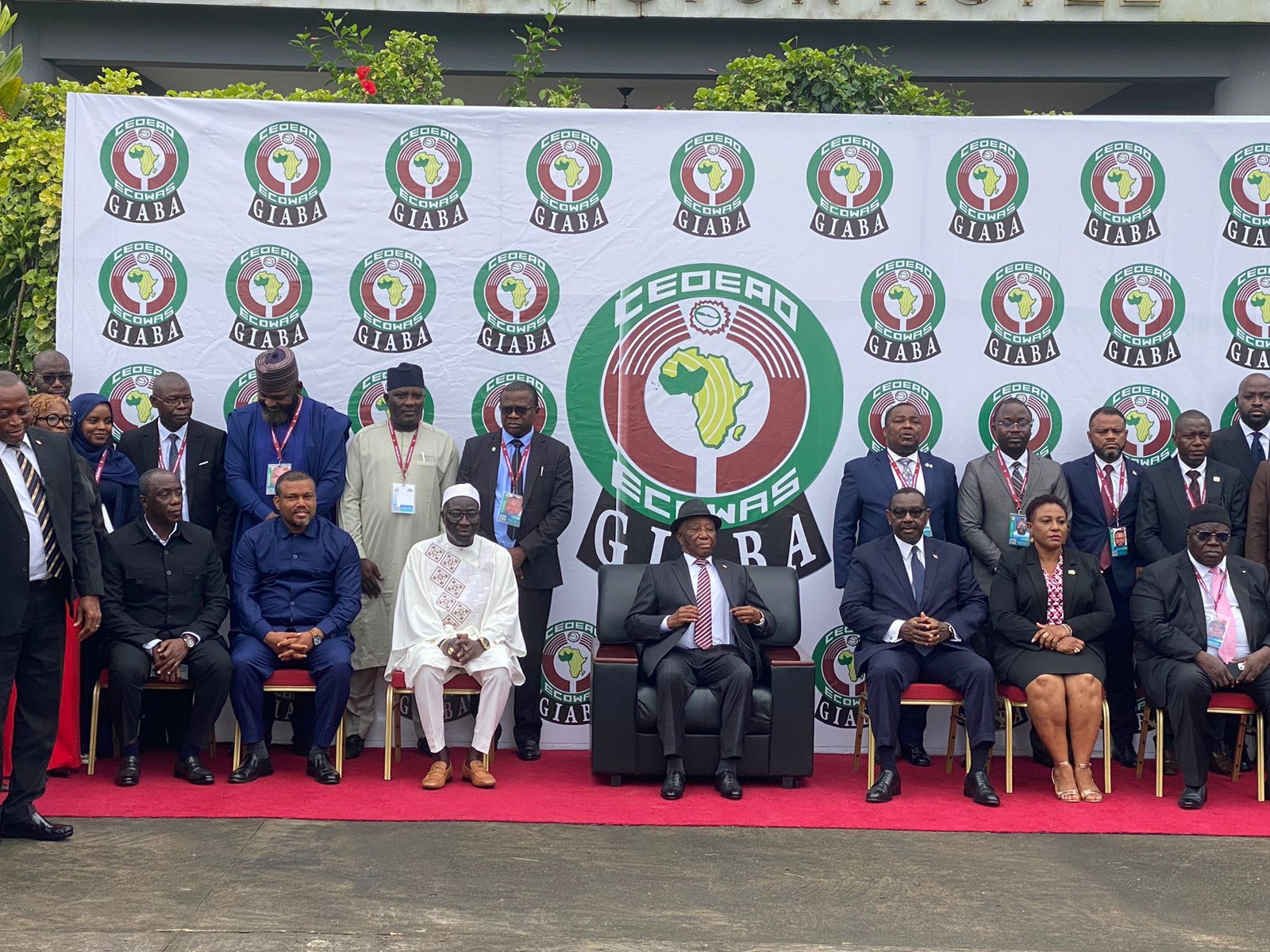President Boakai Reaffirms Commitment to Regional Fight Against Financial Crime
In a powerful opening address, President Joseph Nyuma Boakai, Sr. underlined Liberia’s renewed determination to tackle money laundering, terrorist financing, and other illicit financial flows, as the country hosts the 44th Inter-Governmental Action Group Against Money Laundering in West Africa (GIABA) Plenary meeting in Margibi County. Speaking at the Farmington Hotel, President Boakai welcomed high-level delegates from across West Africa, ECOWAS, development partners, and the international community.
He described the gathering as a “convergence of collective wisdom, commitment, and unwavering determination” to build a “safer, more transparent, and more resilient West Africa.” “These threats undermine both regional and national security, distort financial systems, erode public confidence, and obstruct the development that our region so urgently needs,” Boakai said. Key Reforms and Institutional Strengthening The president highlighted a series of legal and institutional reforms carried out by his government to align Liberia’s financial crime framework with international standards. Central to this effort is the Financial Intelligence Agency (FIA), which Boakai described as “our national cornerstone in the fight against money laundering and terrorist financing.”

He pledged continued support to ensure the Agency remains independent, well-resourced, and technically capable. Liberia, he said, is fully committed to: Implementing FATF (Financial Action Task Force) recommendations; Addressing deficiencies identified during its Second Round Mutual Evaluation; Enhancing supervision across all reporting sectors; Strengthening beneficial ownership transparency; Improving cooperation between competent authorities through its Inter-Ministerial Committee and Financial Crimes Working Group; Boosting efforts for investigations, prosecutions, and asset recovery; and Building an AML/CFT system that meets both regional (GIABA) and global standards. Regional Cooperation:
A Shared Responsibility President Boakai emphasized that financial crime does not respect borders, noting that a unified regional front is essential. He called for enhanced intelligence-sharing, harmonization of laws, and joint capacity building to tackle emerging challenges—like cyber-enabled financial crime and proliferation financing. He urged the GIABA member states to “adapt, innovate, and collaborate” and warned that criminal networks are already exploiting new technologies to move illicit funds. Celebrating Liberian Leadership The Liberian president also took a moment to recognize Edwin W. Harris, Jr., Director General of GIABA, whose tenure is coming to an end. “You have been a great ambassador for Liberia,” Boakai said, praising his expertise and dedication.
FIA’s Perspective: Technical Strengthening & Legacy In his opening remarks, Mohammed A. Nasser, Officer-in-Charge of the FIA, welcomed delegates on behalf of the Agency. He stressed the importance of the plenary as a platform for sharing best practices, enhancing inter-agency cooperation, and reinforcing national systems. Nasser noted that Liberia’s reforms are not only structural but operational: modernizing the FIA, improving reporting frameworks, and investing in staff and technology. Representing ECOWAS, Ambassador Josephine Nkrumah delivered a goodwill message, applauding GIABA’s 25 years of regional work. She encouraged member states to double down on promoting beneficial ownership transparency, fighting illicit financial flows, and leveraging digital tools to strengthen financial integrity.
“When illicit funds are blocked, criminal networks weaken, corruption slows down, and communities thrive,” she said. Setting the Agenda: Plenary Focus Areas According to GIABA’s pre-meeting press materials, the week-long event (17–21 November) will tackle several priority topics, including: 1. Follow-Up Reports (FURs) from the second round of mutual evaluations — notably for Mali, Niger, Guinea, and Sierra Leone. 2. Typology work on money laundering, terrorist financing, and proliferation financing risks — particularly as they relate to trade. 3. Adoption of an operational manual for Financial Intelligence Units (FIUs) and Central Intelligence Cells (CICs). 4. A closed Regional Forum of FIUs and a special session with the United Nations Office of Counter-Terrorism (UNCCT). 5. Election of a new bureau for the Technical Commission, and presentation of GIABA’s activity report.
6. Commemoration of GIABA’s 25th anniversary, highlighting its progress since its establishment in 2000. Challenges & The Road Ahead Liberia’s commitment to strengthening its anti-financial crime architecture comes at a critical moment. According to GIABA’s most recent evaluation of Liberia (adopted in June 2023), while progress has been made, there remain significant gaps in effectiveness and compliance. In response, Liberia launched a National AML/CFT Action Plan (2024–2028) through its Inter-Ministerial Committee, aiming to address those deficiencies.
Key areas include criminal investigations, beneficial ownership transparency, and improving coordination and supervision across sectors. By hosting the 44th GIABA plenary, Liberia is not only signaling political will—it is staking a claim as a leader in regional financial governance. With its strengthened FIA, renewed strategic plan, and deep engagement with GIABA, Monrovia aims to demonstrate that financial crime can be confronted through cooperation, reform, and transparency.
Author: Cooper Sangar


